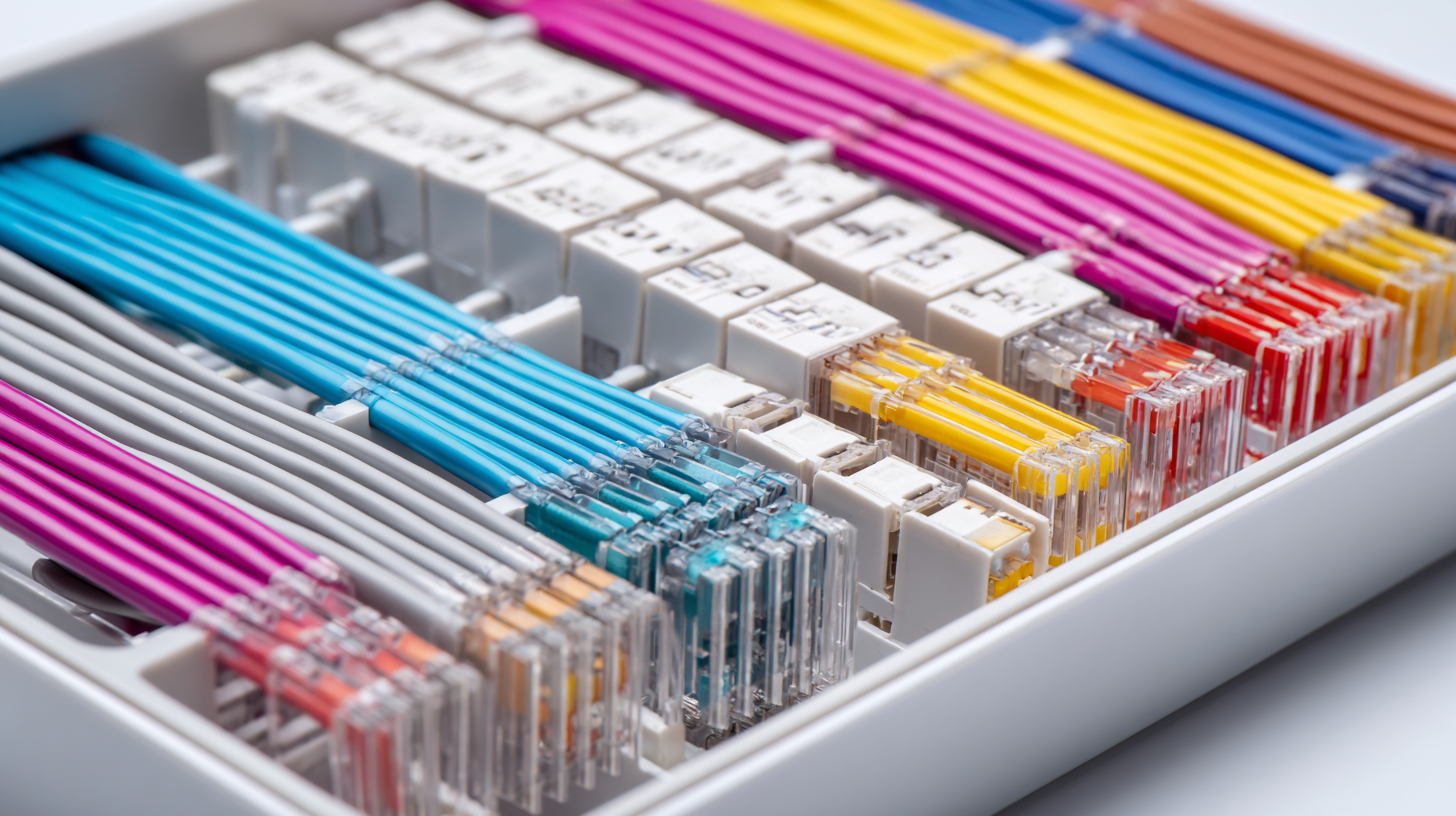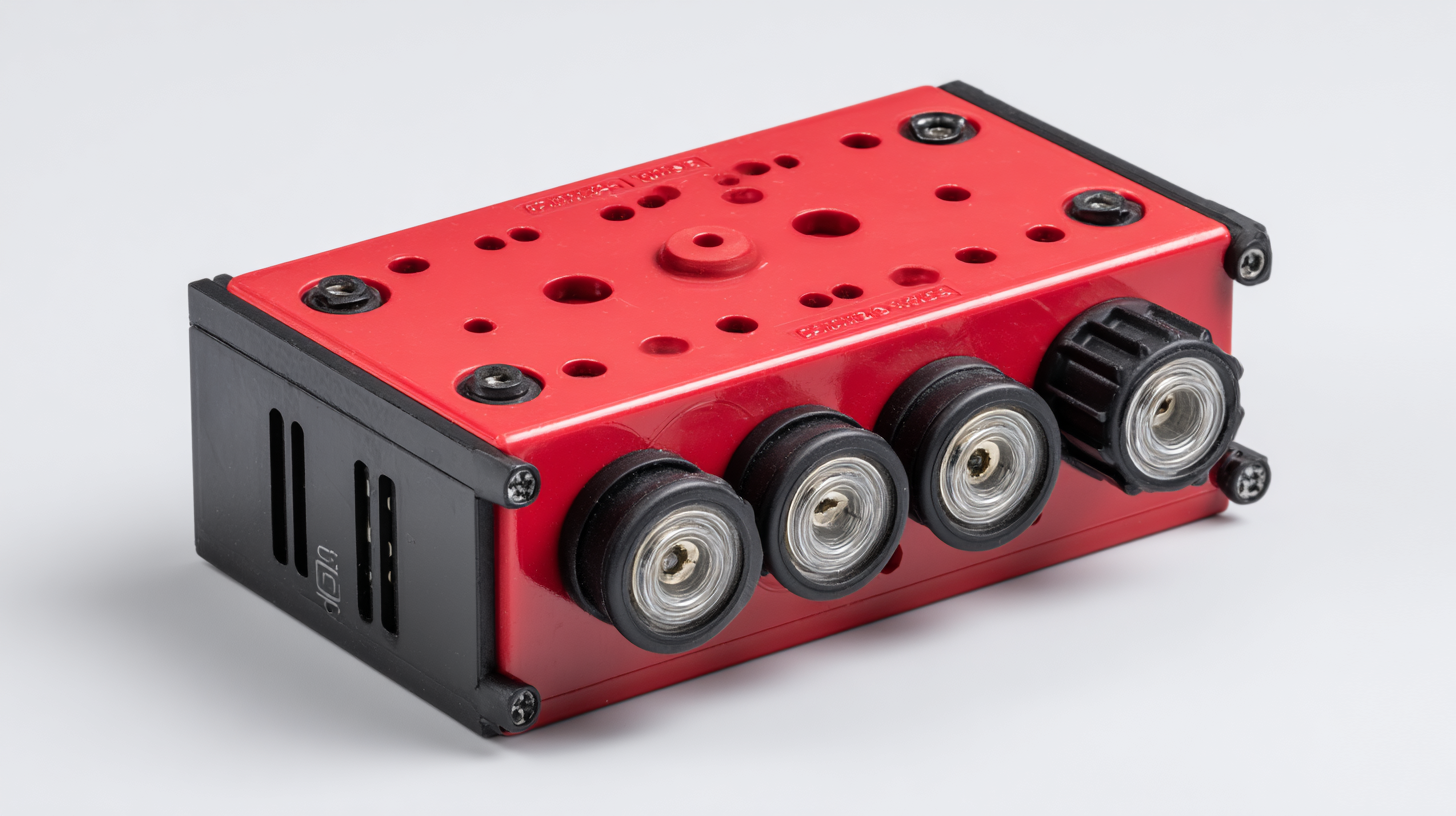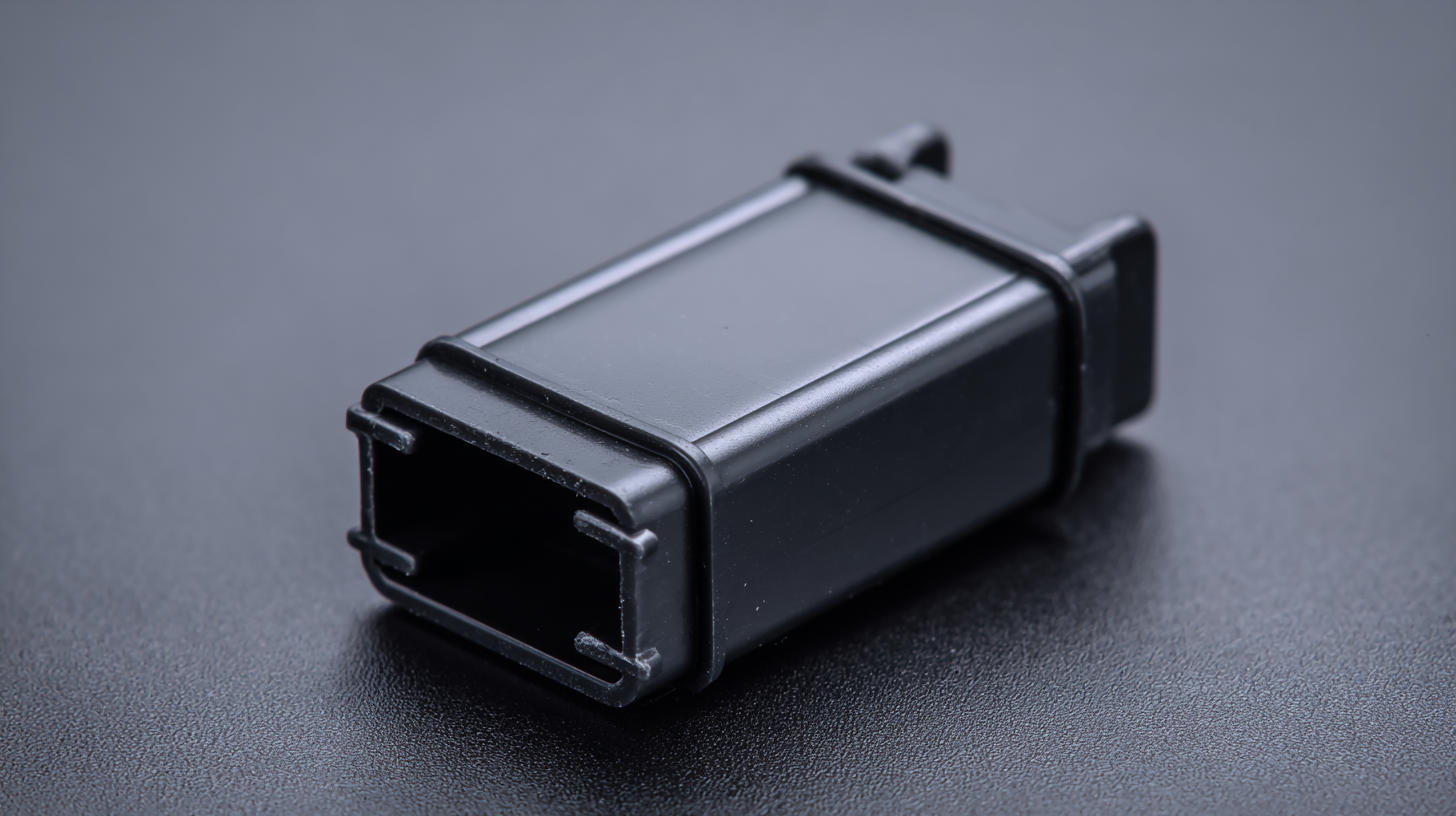
As we move towards Industry 2025, the demand for reliable and efficient solutions is driving innovation in various sectors, particularly in the realm of connectivity.
 The plastic rectangular connector has emerged as a critical component in modern electronic assemblies, characterized by its lightweight design and versatility.
According to a recent report by Markets and Markets, the global market for connectors is anticipated to reach USD 80 billion by 2027, with plastic rectangular connectors playing a significant role in this growth due to their applications in automotive, consumer electronics, and industrial automation.
As manufacturers seek to adapt to the trends of Industry 2025, choosing the right plastic rectangular connector supplier has never been more crucial.
This blog will explore essential strategies for identifying quality suppliers and ensuring that the connectors used meet the highest performance standards, ultimately supporting the technological advancements of the future.
The plastic rectangular connector has emerged as a critical component in modern electronic assemblies, characterized by its lightweight design and versatility.
According to a recent report by Markets and Markets, the global market for connectors is anticipated to reach USD 80 billion by 2027, with plastic rectangular connectors playing a significant role in this growth due to their applications in automotive, consumer electronics, and industrial automation.
As manufacturers seek to adapt to the trends of Industry 2025, choosing the right plastic rectangular connector supplier has never been more crucial.
This blog will explore essential strategies for identifying quality suppliers and ensuring that the connectors used meet the highest performance standards, ultimately supporting the technological advancements of the future.
As we approach 2025, the plastic rectangular connector industry is poised for significant evolution driven by emerging trends.
One pivotal trend is the increasing demand for lightweight and compact solutions. Manufacturers are focusing on creating connectors that not only reduce overall weight but also maintain the robustness necessary for various applications, particularly in the automotive and aerospace sectors.
This shift is pushing companies to explore innovative materials and designs that prioritize efficiency without compromising performance.
Another important trend is the rise of smart technology integration within connectors. As industries look to enhance connectivity and data transmission, connectors equipped with smart features are becoming essential.
These advancements can include built-in sensors for monitoring performance and environmental factors, as well as improved compatibility with industry 4.0 applications.
As consumers demand more from their devices, selecting a plastic rectangular connector that embraces these innovations will be crucial for businesses aiming to stay competitive in a rapidly evolving market.
When selecting the best plastic rectangular connector for Industry 2025, evaluating supplier credentials is paramount. A crucial aspect to consider is the certifications and compliance standards upheld by potential suppliers. Certifications such as Cyber Essentials offer assurance that a supplier is committed to protecting data from cyber threats, a growing concern in today's digital landscape. Additionally, adherence to NIS2 compliance standards highlights a supplier's capability to mitigate risks that could disrupt operations, which is especially critical for organizations heavily reliant on specific vendors.
Tips: When assessing suppliers, prioritize those with recognized industry certifications. Regularly review their compliance with standards to ensure alignment with your organization’s security and operational requirements. Engaging in a thorough evaluation can significantly enhance your organization's resilience against supplier-related disruptions.
Another facet of supplier evaluation is sustainability. A supplier's commitment to sustainable practices not only aligns with corporate social responsibility goals but also impacts decision-making in procurement. It’s essential to look for suppliers that possess sustainability certifications, which can serve as safeguards against greenwashing. These certifications demonstrate a supplier’s genuine commitment to environmentally responsible practices, aligning with evolving industry standards and enhancing your company’s reputation.
Tips: Track suppliers’ sustainability initiatives and incorporate these metrics into your evaluation criteria. This proactive approach not only reduces potential risks but also fosters long-term partnerships with trustworthy suppliers.

In the ever-evolving landscape of connector technology, understanding market leaders in plastic connector manufacturing is paramount for making informed purchasing decisions. The industry is witnessing a significant shift towards innovative materials and designs that enhance durability and performance. With the global ball valves market projected to reach USD 22.5 billion by 2033, driven by a steady 4.7% CAGR, manufacturers in connector segments must stay attuned to these growth patterns to remain competitive.
When selecting the best plastic rectangular connector, consider the following tips: First, evaluate the connector's environmental resistance, especially if operating in harsh conditions. Materials that withstand temperature variations and chemical exposure are essential for longevity. Second, assess the manufacturer's reputation and their commitment to quality assurance processes. A reliable partner often guarantees superior performance and customer support.
Moreover, as the aviation connector market anticipates a robust growth trajectory, projected at USD 6.1 billion in 2024, exploring manufacturers that specialize in aviation-grade plastic connectors can offer insights into advanced applications. Emphasizing these factors will enable companies to align their needs with industry trends, ensuring optimal performance and reliability in their projects.

When selecting the best plastic rectangular connector for your applications, evaluating supplier capabilities is crucial. Start by assessing the production capacity of potential suppliers. A manufacturer with robust production capabilities can guarantee timely deliveries and meet your volume requirements, which is particularly important in industries experiencing rapid change, such as those influenced by Industry 2025 trends. Look for suppliers who can scale their operations efficiently to accommodate fluctuations in demand without compromising quality.
Technological integration within a supplier's manufacturing process is another vital factor. Suppliers that invest in advanced technologies and automation are more likely to produce connectors with enhanced precision and durability. Consider their adoption of the latest materials and techniques, including environmentally friendly options that align with sustainable practices. Moreover, the ability to integrate smart manufacturing technologies can streamline operations and reduce lead times, giving your business a competitive advantage.
By thoroughly evaluating these capabilities, you can ensure that you are partnering with a supplier that not only meets your current needs but is also equipped to support future innovations.
When selecting a plastic rectangular connector for industrial applications, understanding material specifications is crucial for ensuring optimal performance and longevity. According to a recent report by the Institute of Electrical and Electronics Engineers (IEEE), the choice of materials can impact a connector's resistance to environmental factors like temperature, humidity, and chemical exposure. High-performance plastics, such as polyphenylene sulfide (PPS) and polyether ether ketone (PEEK), offer superior thermal stability and chemical resistance compared to standard materials, minimizing the risk of degradation and improving overall reliability.
**Tip:** When evaluating materials, consider the specific operational environment of your application. For instance, if the connector will be exposed to harsh chemicals, opting for a connector made from PPS can enhance durability.
Furthermore, the design of the connector itself must align with the mechanical requirements of the application. A study by the International Federation of Robotics reveals that connectors with enhanced locking mechanisms improve assembly reliability and reduce the risk of disconnection under stress. Selecting connectors designed for high mechanical strength, such as those featuring reinforced designs, can contribute to better performance in demanding scenarios.
**Tip:** Assess the mechanical ratings, such as pull strength and mating cycles, provided by manufacturers to ensure that you choose a connector that meets your application's demands.
| Connector Type | Material | Temperature Range (°C) | Mechanical Strength (MPa) | UV Resistance | Environmental Compliance |
|---|---|---|---|---|---|
| Rectangular Connector A | Polyamide (PA) | -40 to 105 | 80 | Yes | RoHS Compliant |
| Rectangular Connector B | Polybutylene Terephthalate (PBT) | -25 to 130 | 90 | Yes | REACH Compliant |
| Rectangular Connector C | Styrene-ethylene Butylene Styrene (SEBS) | -40 to 85 | 70 | Moderate | UL Listed |
